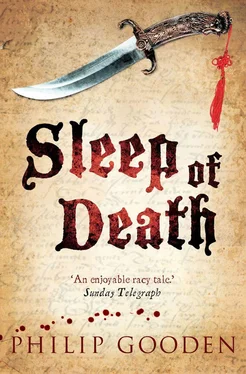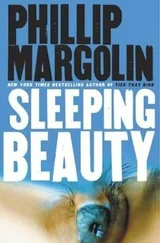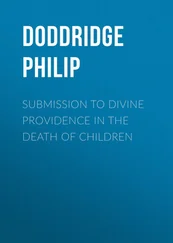Philip Gooden - Sleep of Death
Здесь есть возможность читать онлайн «Philip Gooden - Sleep of Death» весь текст электронной книги совершенно бесплатно (целиком полную версию без сокращений). В некоторых случаях можно слушать аудио, скачать через торрент в формате fb2 и присутствует краткое содержание. Год выпуска: 0101, ISBN: 0101, Издательство: Constable & Robinson, Жанр: Исторический детектив, на английском языке. Описание произведения, (предисловие) а так же отзывы посетителей доступны на портале библиотеки ЛибКат.
- Название:Sleep of Death
- Автор:
- Издательство:Constable & Robinson
- Жанр:
- Год:0101
- ISBN:9781472104311
- Рейтинг книги:5 / 5. Голосов: 1
-
Избранное:Добавить в избранное
- Отзывы:
-
Ваша оценка:
- 100
- 1
- 2
- 3
- 4
- 5
Sleep of Death: краткое содержание, описание и аннотация
Предлагаем к чтению аннотацию, описание, краткое содержание или предисловие (зависит от того, что написал сам автор книги «Sleep of Death»). Если вы не нашли необходимую информацию о книге — напишите в комментариях, мы постараемся отыскать её.
Sleep of Death — читать онлайн бесплатно полную книгу (весь текст) целиком
Ниже представлен текст книги, разбитый по страницам. Система сохранения места последней прочитанной страницы, позволяет с удобством читать онлайн бесплатно книгу «Sleep of Death», без необходимости каждый раз заново искать на чём Вы остановились. Поставьте закладку, и сможете в любой момент перейти на страницу, на которой закончили чтение.
Интервал:
Закладка:
‘How useful that was,’ said Lady Alice, more calmly.
Was this not an admission of their guilt?
‘To have him out of the way at the same time every day,’ said Sir Thomas, tickling with his fingers at the exposed bosom of his wife.
‘Only if the sun shone,’ said Lady Alice, shifting a little in the anxiety of her pleasure.
‘When it shone for him, it shone for us.’
More low laughter. More sweating from the watcher up the tree.
An admission of guilt, yes. But guilt of what? Their words suggested that they had engaged in covert cut-and-thrust, perhaps in my lady’s chamber, perhaps elsewhere in the capacious mansion, when the husband had been slumbering here in the garden in his hammock. This was not yet an admission of murder.
I waited for more, and more came.
‘Of course, there were always your trips to Dover,’ she said.
‘Oh, Dover is a good port, a good place of entry,’ he said.
They laughed together, still like bad children.
‘Dover in Fish Street, that is,’ he said.
‘I miss my visits to Dover,’ she said.
‘There is no need to travel when you are well provisioned at home.’
‘But you still keep your lease on Dover?’
‘A foxhole merely.’
She did not reply, and by her shifting slightly away from her husband I could see that his last remark had not pleased her. Anyway, they spoke so low and were so consumed with amusement at their own doings, that I could scarcely hear them. But I had heard enough. I remembered what dead Francis replied to my question about Sir Thomas’s whereabouts when his brother’s body had been discovered. ‘He was away, in Dover, I think.’ Although the knight and his lady were speaking in a kind of cipher, it was one that was plain enough to read. Sir Thomas, in addition to his debt-ridden estate in Richmond, maintained some little lodgings in Fish Street (close to Paul’s) to which he and his lady might repair for their diversion. When he went there he spoke of ‘going to Dover’, a town sufficiently distant to account for lengthy absence. The phrase had evidently become a joke between the two. I wondered whether Lady Alice’s displeasure at his retaining the rooms was because she suspected that he might now be doing with another what he had been acustomed to do there with her.
‘My brother was a fool,’ said Sir Thomas, apparently thinking that the way back into her favour was to cry down the late Sir William. ‘To cultivate the ground here and to neglect the ground here. ’ So saying, he dug his hand in between her breasts, as if he were some species of gardener. She yelped, and not entirely with pleasure, I thought.
‘What wealth he missed, what a luxurious crop he neglected to harvest,’ pursued Sir Thomas, evidently pleased with his agricultural metaphors.
‘What wealth you have gained,’ said Lady Alice, and from her tone I judged that she did not mean only her bodily self.
‘Oh, we have benefited, my dear. This has been to our advantage,’ said her new husband.
‘As the cat said when the farmer’s wife rescued it from the well,’ she said.
But this proverbial analogy, rather surprising in the mouth of my Lady Alice, was not much to Sir Thomas’s liking, for he now raised himself into a sitting position. The sniggering understanding between the two, the sense that they shared a history of secrets, had been replaced with a brisker mood. The first gusts of evening were blowing over the wall and ruffling the trees. My back was clammily cold with sweat. Sir Thomas got to his feet and then offered his hand to Lady Alice. But she raised herself up without his assistance and then, together but at a little distance from each other, they made their way towards the garden door.
I waited a good five minutes up the pear tree, to ensure that they would be safely across the larger garden beyond and into the great house, before lowering my stiff limbs to the ground.
Excerpts from my notebook:
I have changed my mind. I thought William’s belief that there was something odd about his father’s death was the result of his grief or, perhaps, of attending one too many performances of Master WS’s Hamlet. But now the discovery of Francis’s body in the river, the emergence of the shirt that was missing and then found wrapped round his corpse, the disturbing behaviour of Old Nick the apothecary and his vision of somebody talking to Francis, talking in an urgent, commanding whisper, talking him over to his death — all this compels me to acknowledge that old Sir William’s death cannot have been natural.
Another point (under a sub-head, as it were): after Old Nick had taken hold of Francis’s shirt and was speaking in that strange, tranced manner and using words and a tone not his own, it seemed to me that the voice was familiar. There was in it something faint, but recognisable.
So I must conclude that Sir William was murdered.
What follows from that?
Where, when, how, who? And why?
These are the questions which follow, as the night the day.
Let us start with an easy question. Where?
Response: in his orchard, where it was his custom to sleep on warm afternoons. This was no secret. Anybody wanting to take him at his most vulnerable would choose that moment, particularly as they knew that he regularly went there alone. No one else had a key to the secret garden, Francis told me. I have established this from other servants too.
Another question, almost as easy: When?
Response: at some time between the beginning and the end of the afternoon, a gap of perhaps four hours. Francis says that the body was scarcely warm. Even allowing for the coldness of a spring evening he must have been dead some time. Also: his wife and his son and other members of the household came out to search because they were worried at his absence. This too indicates to me that the murder occurred earlier. If he’d been in the habit of staying in his orchard for hours, until it grew dark in fact, they would not have worried.
A harder question: How ?
This may be broken down into several smaller questions as, how did our murderer get into the garden, how did he conceal himself, how did he kill Sir William?
Response: I don’t know. Or, rather, I know only what I think I know. When I reconstructed the crime in the garden, attended by the faithful Jacob, I was at first sure that I had found the hiding place of our murderer, up in the old spreading pear tree. Then I doubted. But the discovery of those initials, WS, has in a manner confirmed my suspicion — yes, this was an ‘occupied’ tree — while throwing me further into confusion. Both times I felt in my bones that I was crouching, uncomfortably, up in the branches where our murderer had crouched, that I was in his bloody shoes. My confusion comes from what those initials may stand for. Here I waver, shuttling between doubt and certainty. At one moment I think: The playwright sat up the pear. The next I tell myself: It cannot be that the foremost author in the finest playhouse in the greatest city in the world skulks in trees, waiting to drop down on an unsuspecting knight so as to put him to death.
As to the other part of the ‘how’ question, that is how did Sir William actually shuffle off this mortal coil, what precisely procured his exit? That, too, I don’t know. But I have some hopes of the apothecary.
Question: Who ?
Who wanted Sir William dead? (If I leave aside Master WS.) Who benefited from his death?
Look to his family.
Lady Alice I know from my own experience to be a woman with, as Francis expressed it, a saltiness in her looks — and not just in her looks. Witness the behaviour of the couple which I had spied from the tree in the evening. That they were bed-partners before the death of Sir William was hardly to be doubted. Suppose, however, that the occasional stolen afternoon, when the sun shone, or when she might go and see him in his lodgings in ‘Dover’, was not sufficient for her, or for him. Suppose that she wanted Sir Thomas for a husband, now and for next week; suppose that Sir Thomas wanted her for his wife, also now and for next week; and therefore they would not wait for mortality to strike the first husband down but must needs give him a thrust. Suppose that Sir Thomas wanted control over more than his brother’s human relict; that he wanted the fine mansion on the edge of the Thames? I have heard it whispered, and not just by the unfortunate Francis, that Sir Thomas was near bankrout; he was heavily in debt, he was about to lose his estate in Richmond. What had she said in the garden? ‘What wealth you have gained.’ Isn’t this enough to make them plot together — lust and avarice conjoined — to get rid of the first husband? (As Gertrude and Claudius may have plotted together in Master WS’s Hamlet. )
Читать дальшеИнтервал:
Закладка:
Похожие книги на «Sleep of Death»
Представляем Вашему вниманию похожие книги на «Sleep of Death» списком для выбора. Мы отобрали схожую по названию и смыслу литературу в надежде предоставить читателям больше вариантов отыскать новые, интересные, ещё непрочитанные произведения.
Обсуждение, отзывы о книге «Sleep of Death» и просто собственные мнения читателей. Оставьте ваши комментарии, напишите, что Вы думаете о произведении, его смысле или главных героях. Укажите что конкретно понравилось, а что нет, и почему Вы так считаете.












